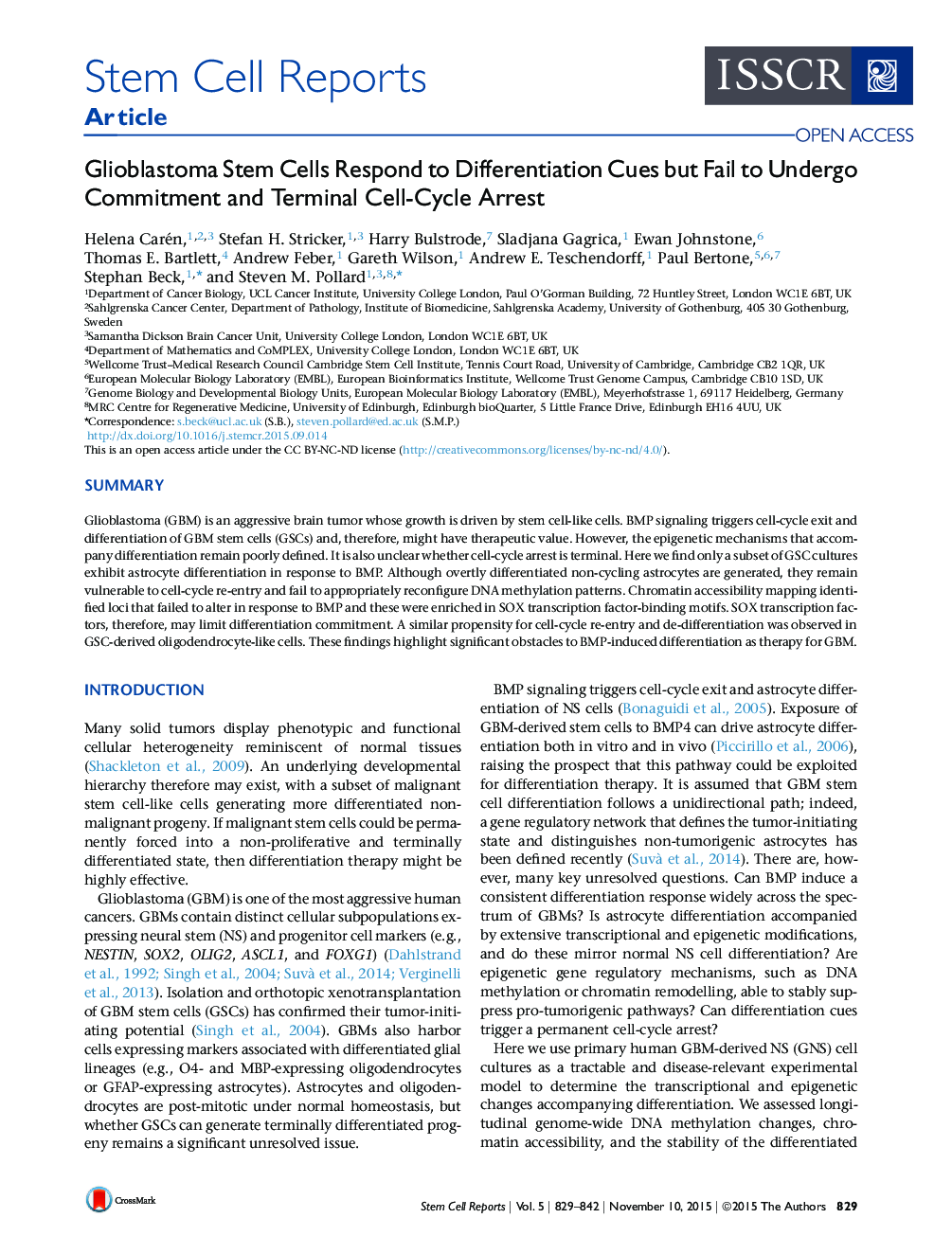| Article ID | Journal | Published Year | Pages | File Type |
|---|---|---|---|---|
| 2093755 | Stem Cell Reports | 2015 | 14 Pages |
•Genome-wide profiling shows DNA methylation patterns during glioblastoma (GBM) differentiation•Delayed and incomplete epigenetic changes appear in GBM stem cells in response to BMP•SOX transcription factors may explain the lack of terminal differentiation•Lack of differentiation commitment limits the effectiveness of BMP-based therapies
SummaryGlioblastoma (GBM) is an aggressive brain tumor whose growth is driven by stem cell-like cells. BMP signaling triggers cell-cycle exit and differentiation of GBM stem cells (GSCs) and, therefore, might have therapeutic value. However, the epigenetic mechanisms that accompany differentiation remain poorly defined. It is also unclear whether cell-cycle arrest is terminal. Here we find only a subset of GSC cultures exhibit astrocyte differentiation in response to BMP. Although overtly differentiated non-cycling astrocytes are generated, they remain vulnerable to cell-cycle re-entry and fail to appropriately reconfigure DNA methylation patterns. Chromatin accessibility mapping identified loci that failed to alter in response to BMP and these were enriched in SOX transcription factor-binding motifs. SOX transcription factors, therefore, may limit differentiation commitment. A similar propensity for cell-cycle re-entry and de-differentiation was observed in GSC-derived oligodendrocyte-like cells. These findings highlight significant obstacles to BMP-induced differentiation as therapy for GBM.
Graphical AbstractFigure optionsDownload full-size imageDownload as PowerPoint slide
